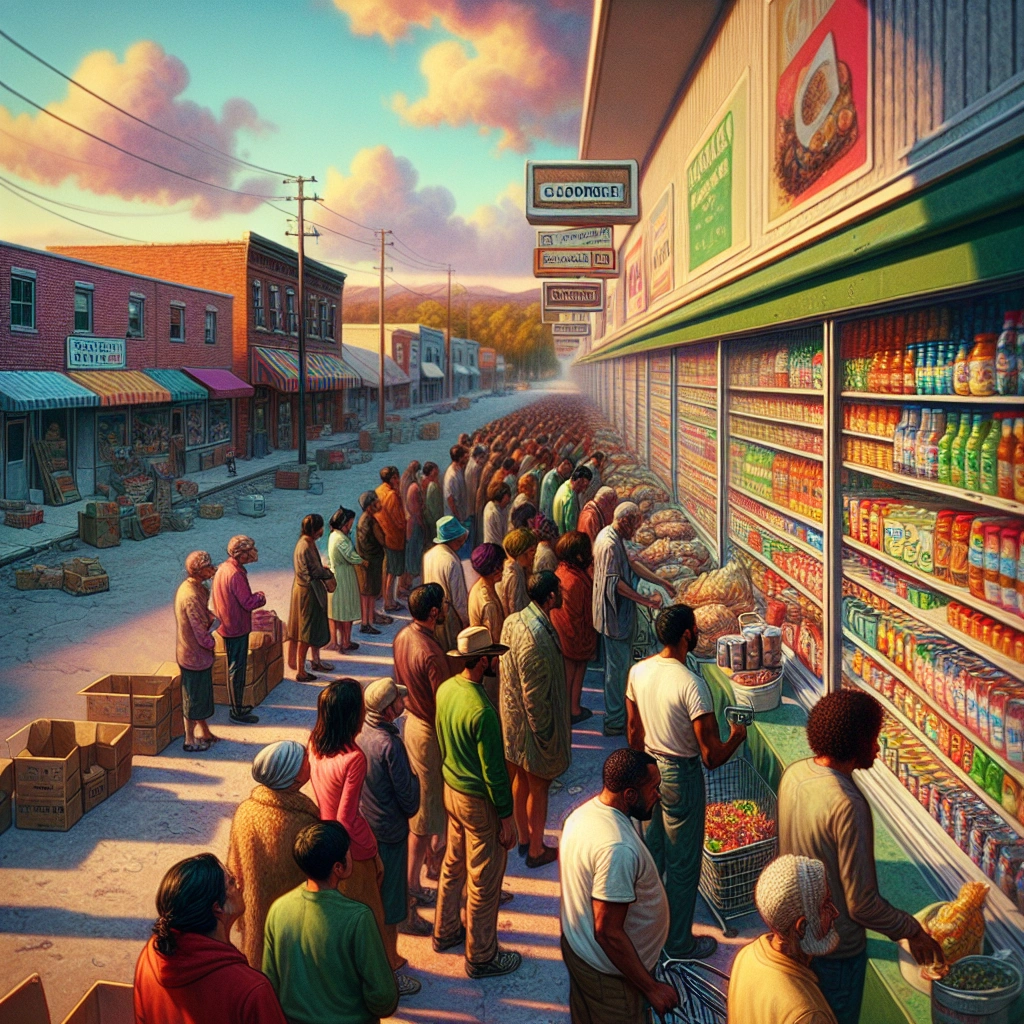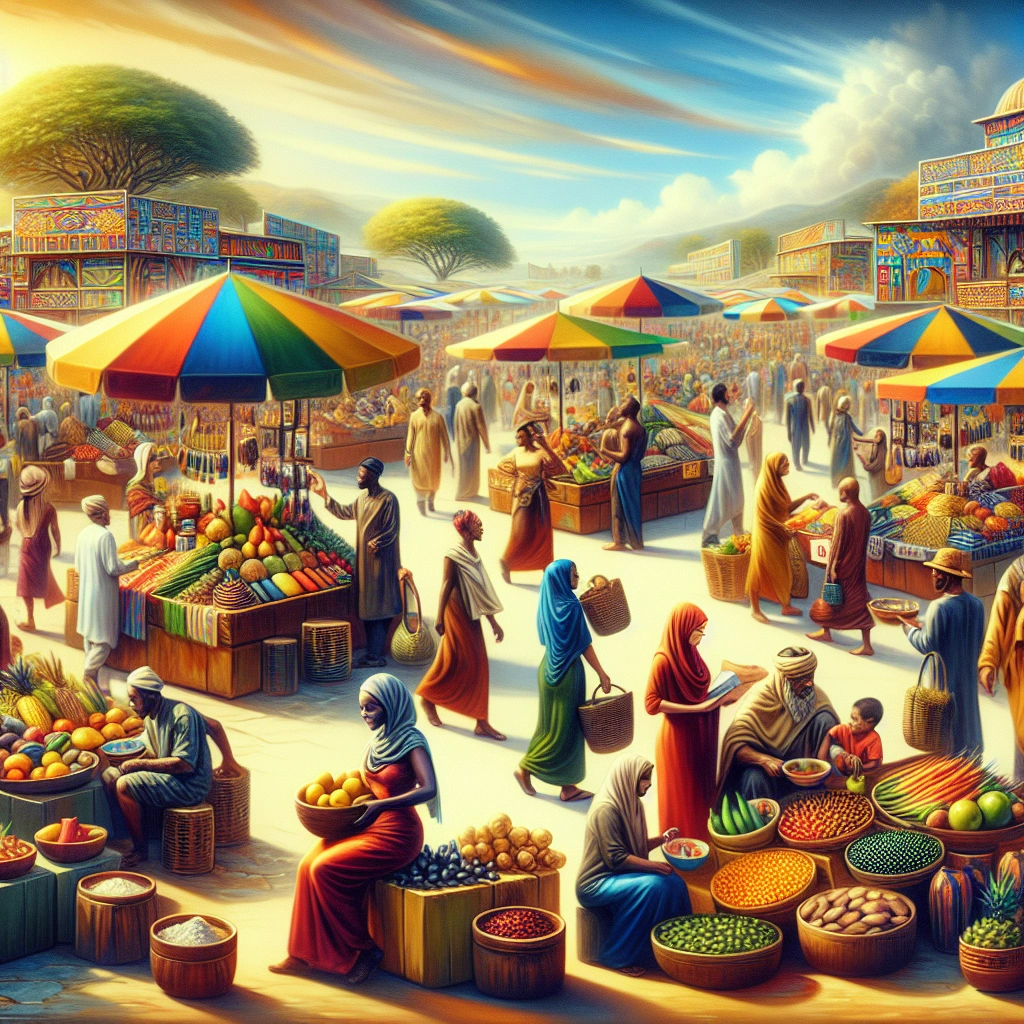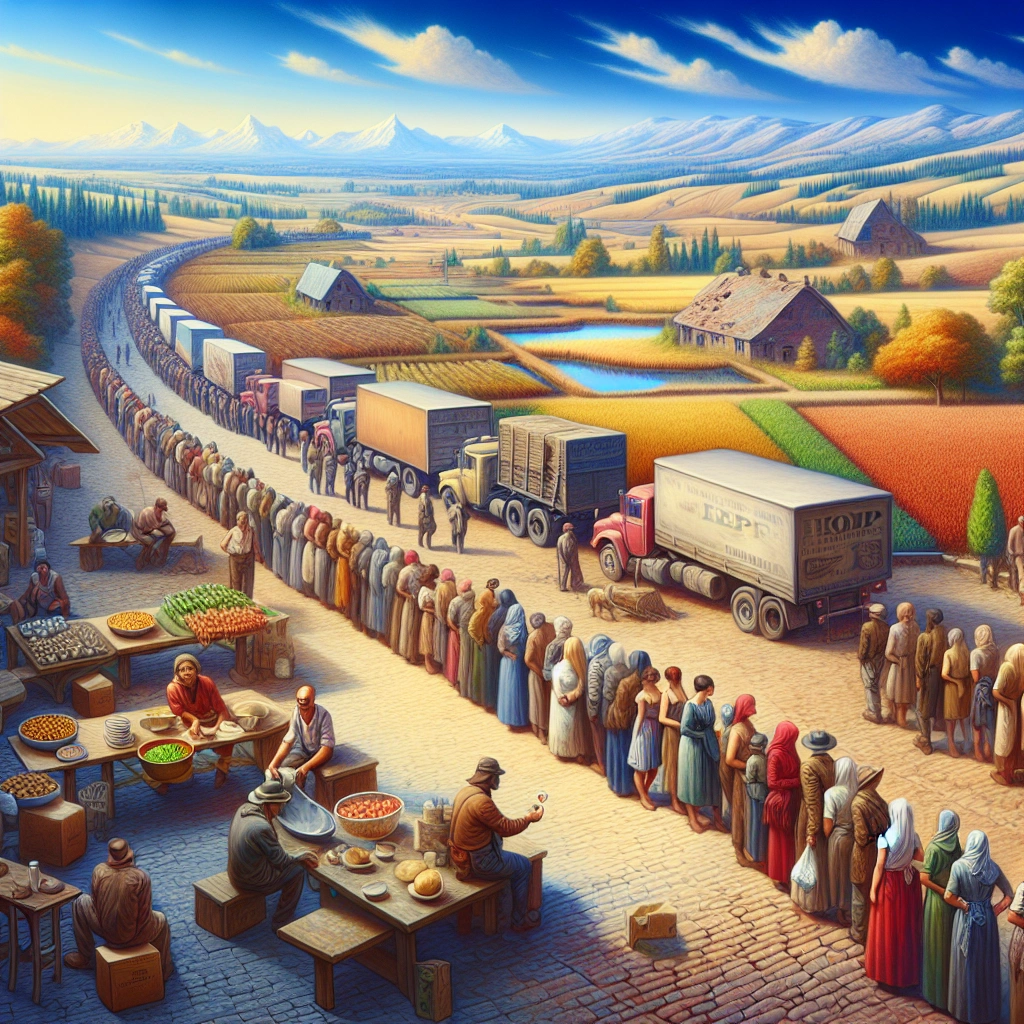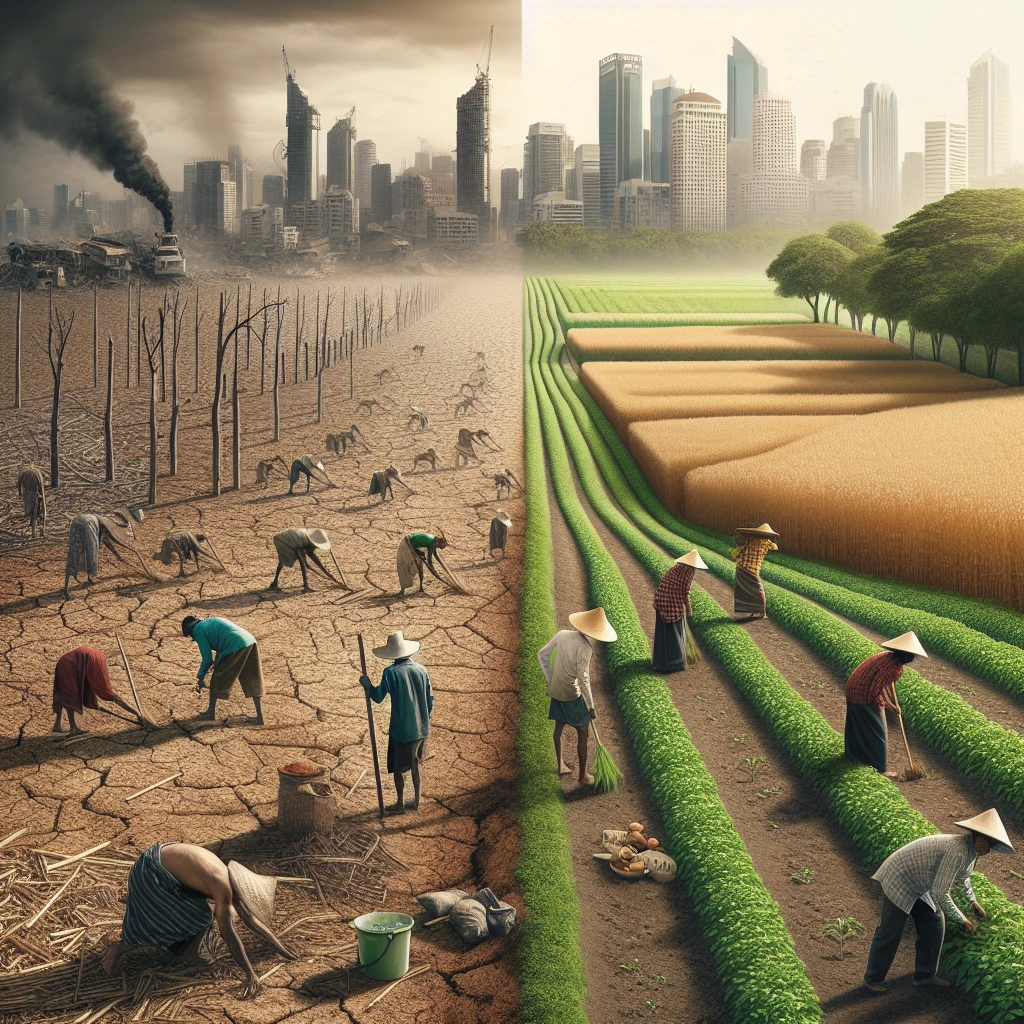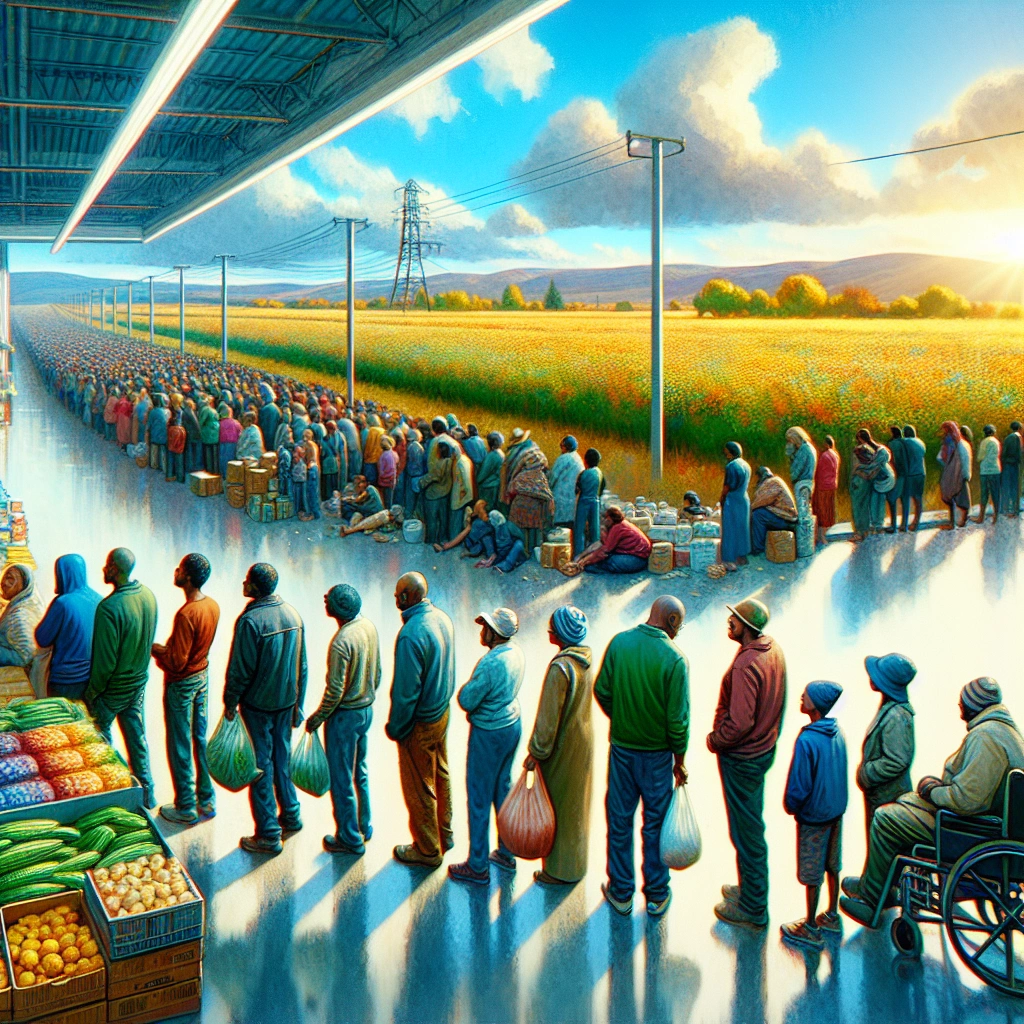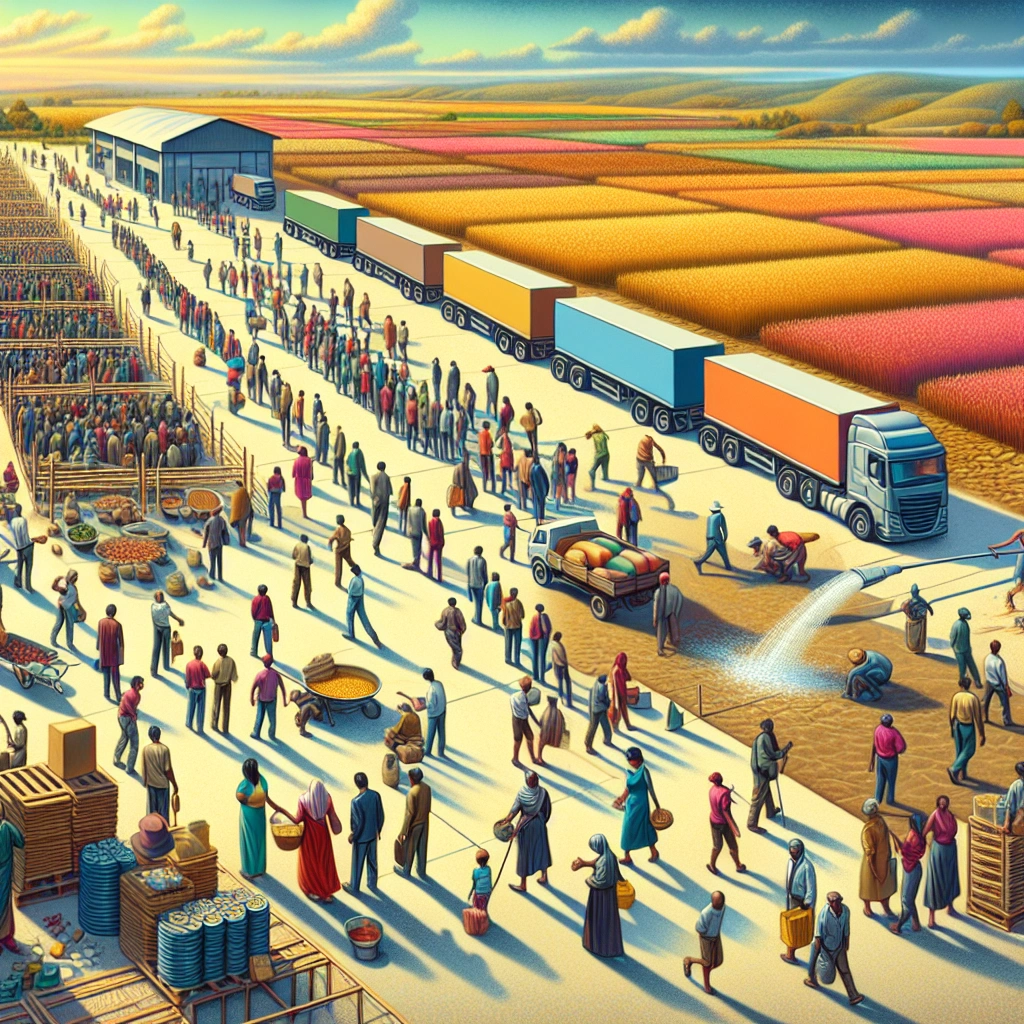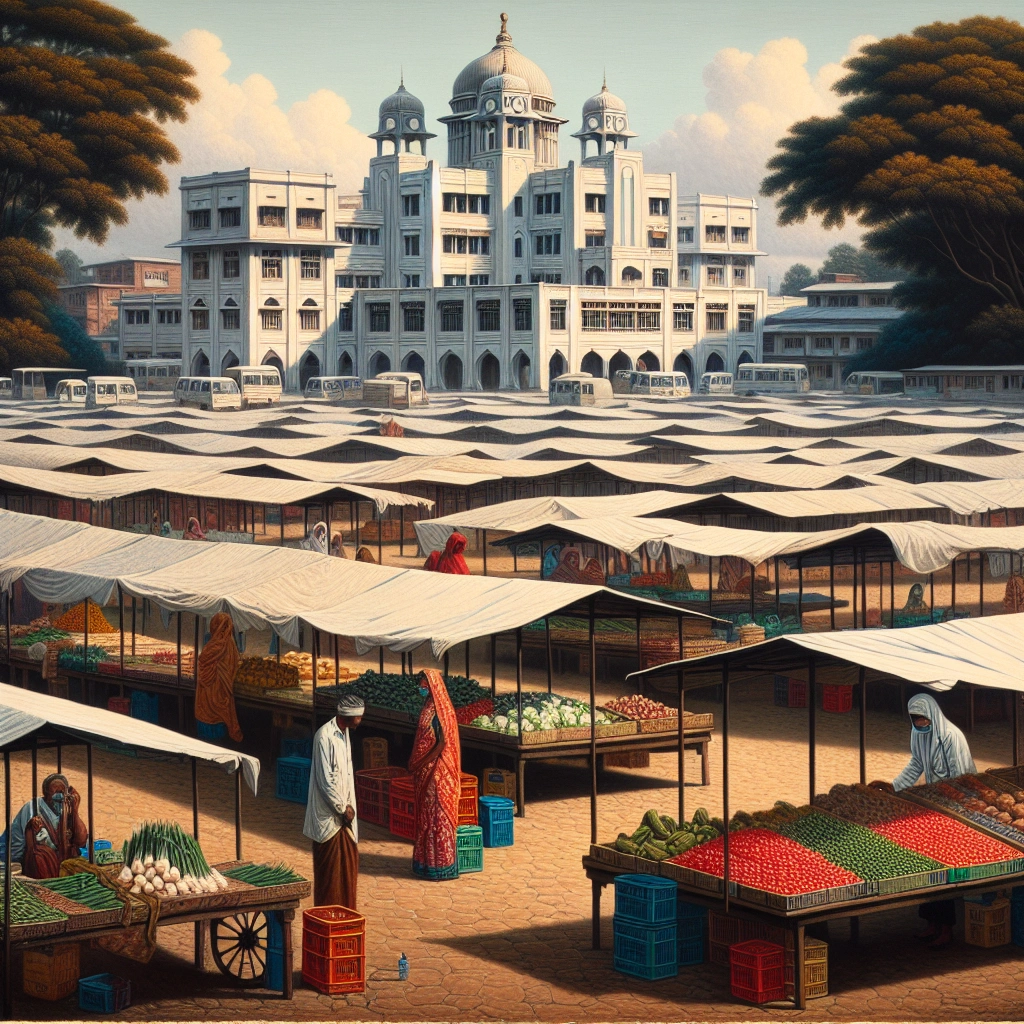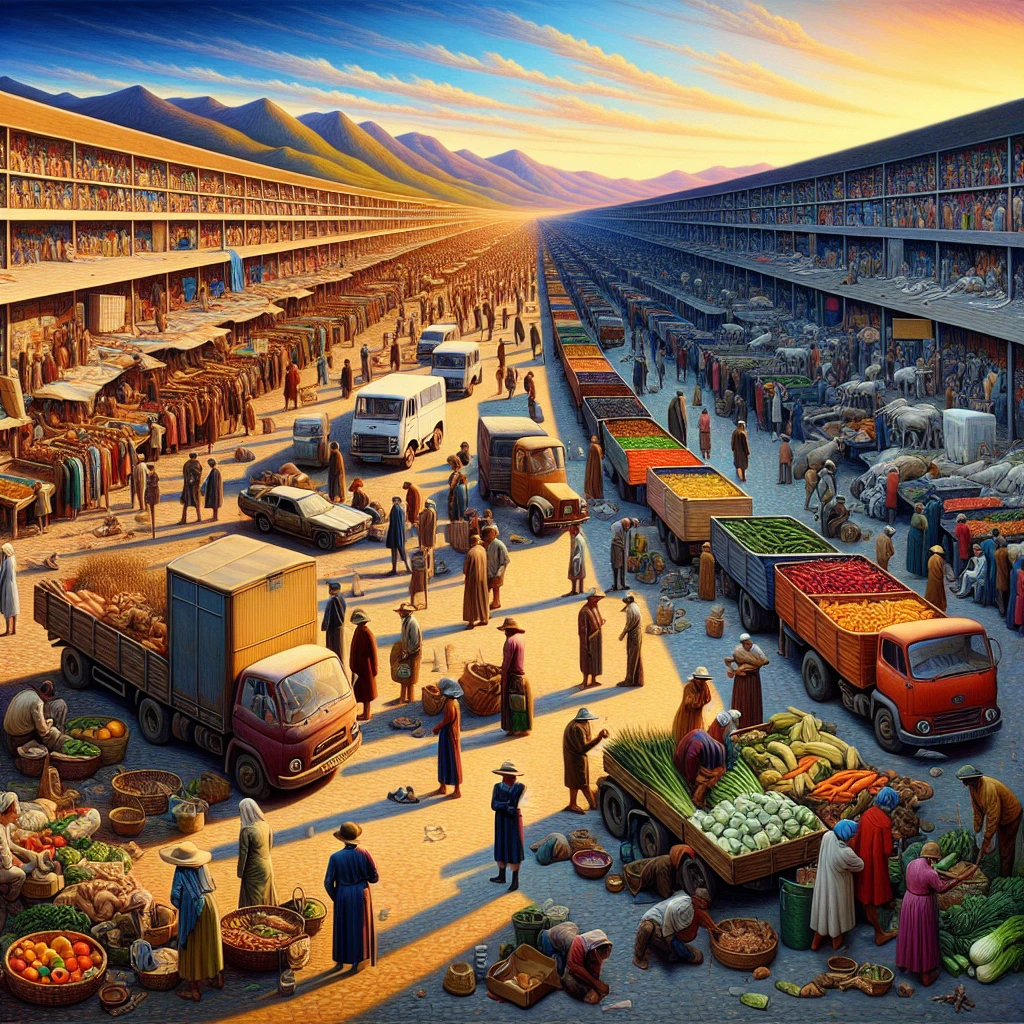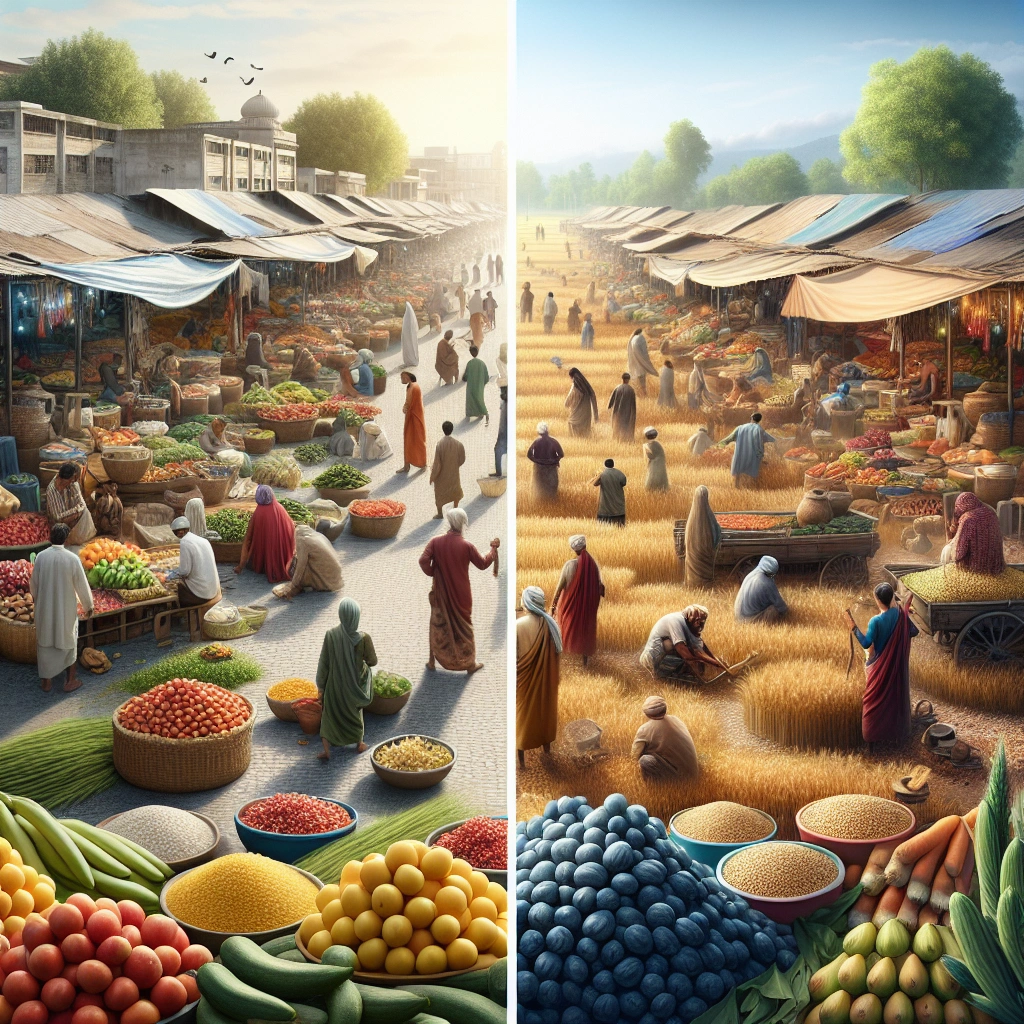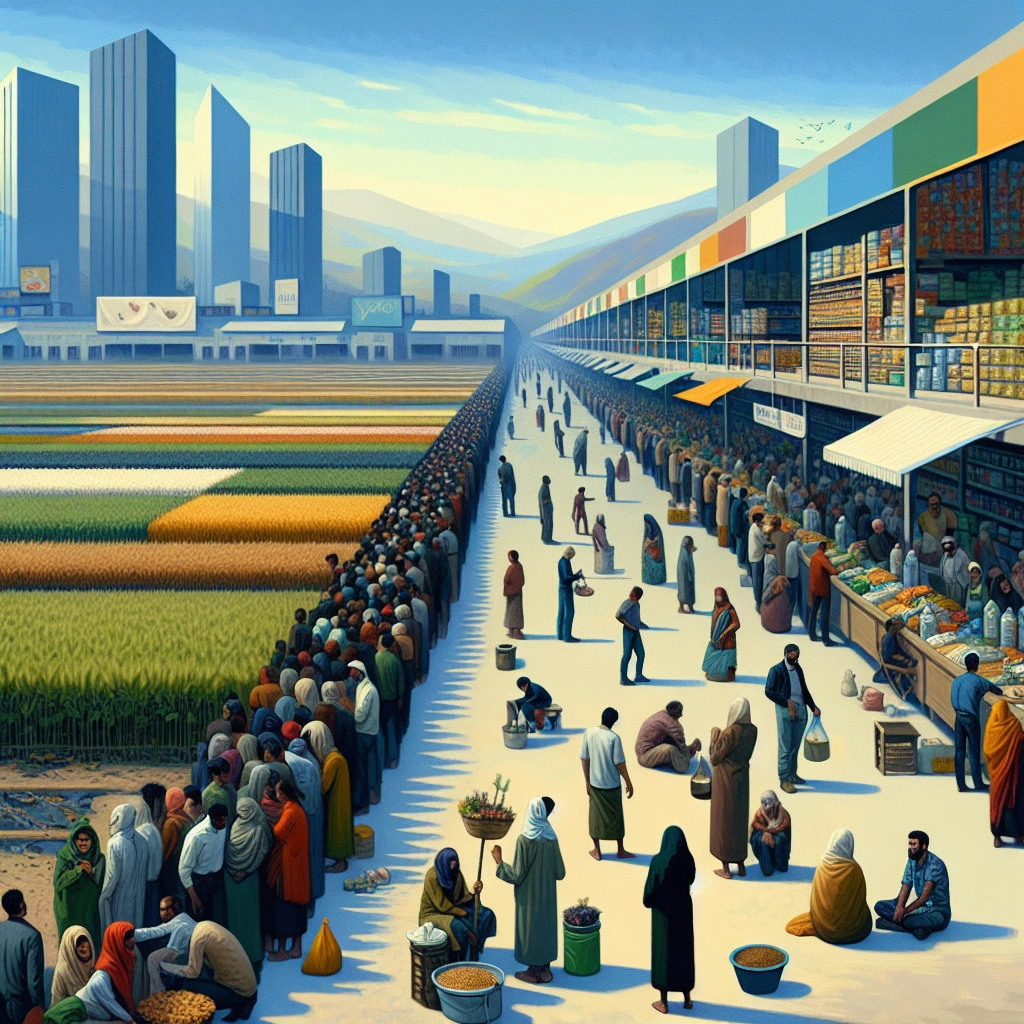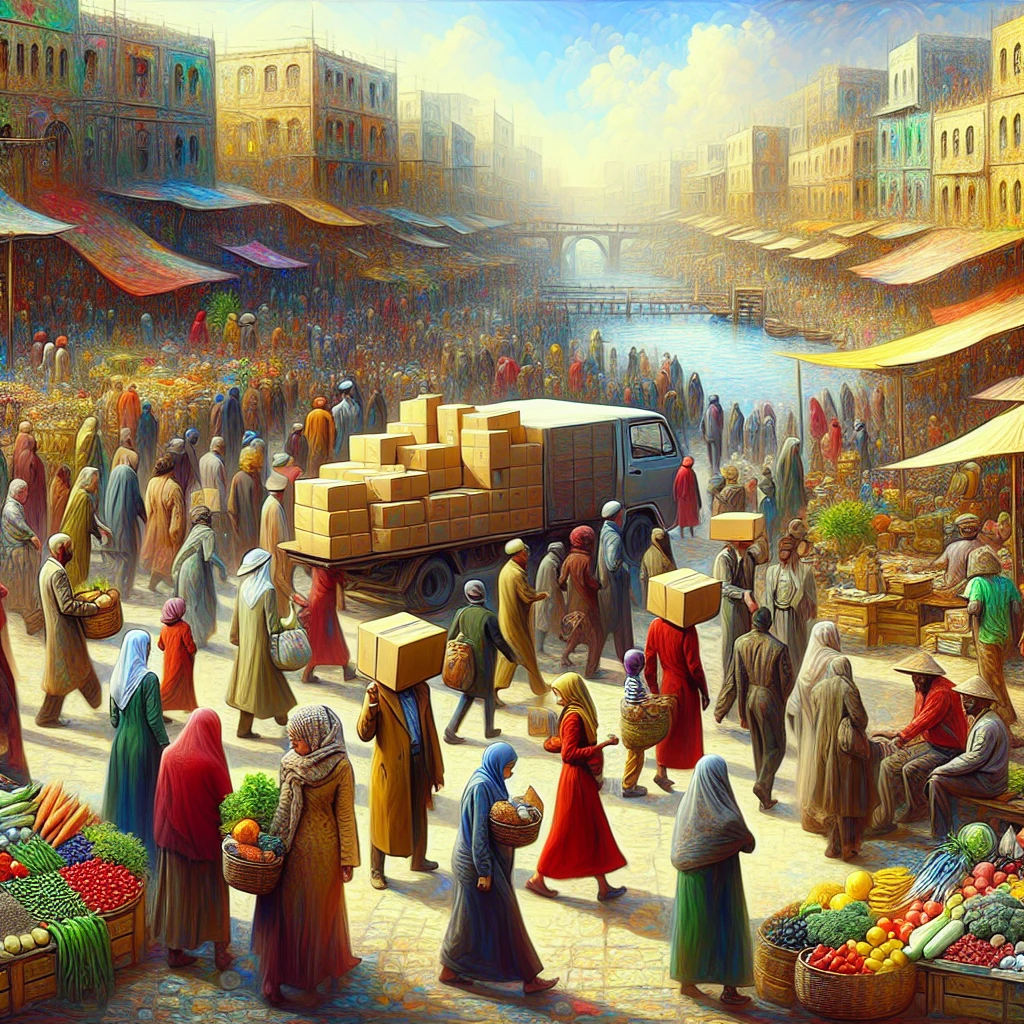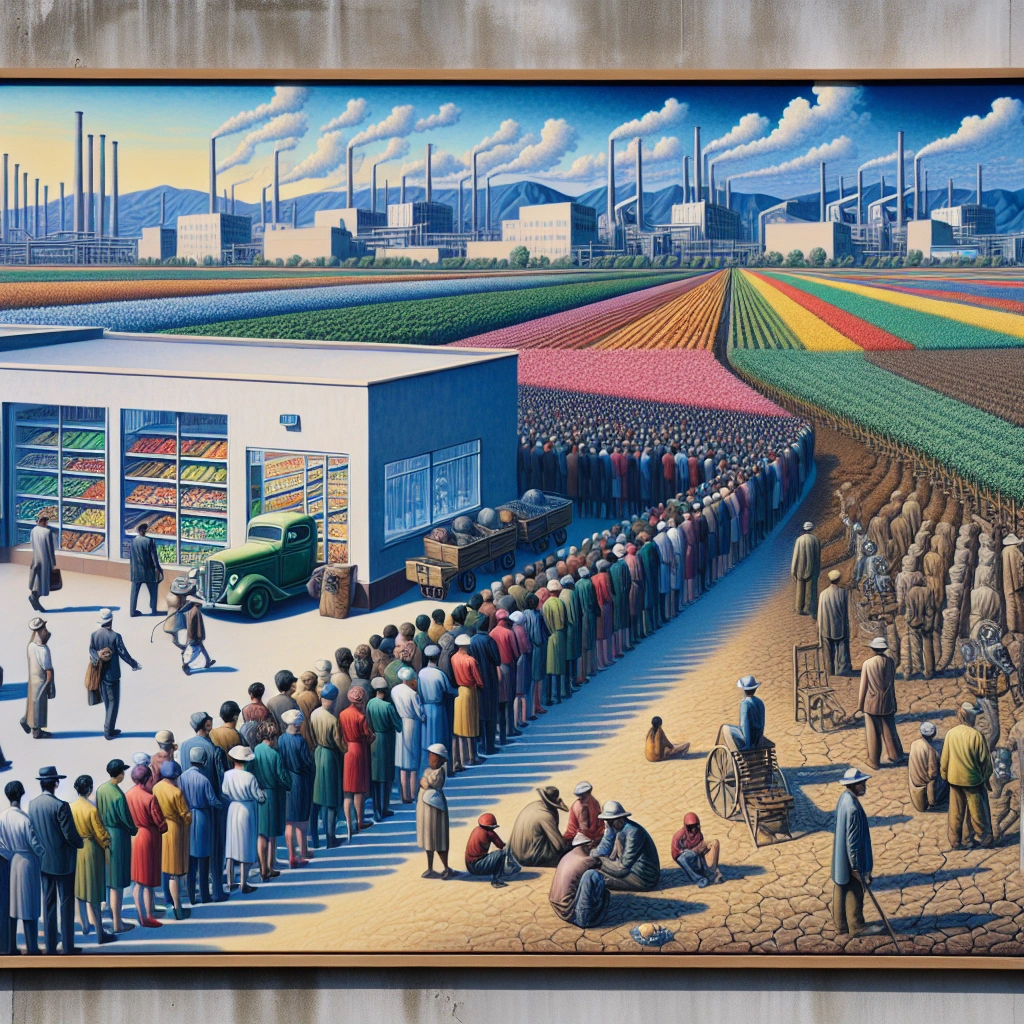

Food shortages have a significant impact on the economies of different countries. When there is not enough food to meet the needs of the population, it can lead to higher prices and decreased consumer spending, which in turn affects overall economic growth.
Additionally, countries that experience food shortages may need to increase imports, leading to a strain on their balance of payments and foreign exchange reserves.
Governments may also need to allocate more resources towards addressing food shortages, which can divert funding from other vital sectors such as healthcare and education. Furthermore, food insecurity can lead to lower productivity and labor force participation, ultimately impacting the overall economic output of a country.
As a result, food shortages can have far-reaching consequences for the economic well-being of nations across the globe.
Check out this Youtube video: “Food Shortage or Economic Crisis? Experts Say…” to understand how food shortages affect the economies of different countries and gain insight into this important global issue.
The Impact of Food Shortages on Agriculture
Effects on crop yields and livestock production
Food shortages have significant effects on crop yields and livestock production. Sustained drought and extreme weather conditions can lead to reduced crop yields, impacting the availability of essential food crops such as maize, rice, wheat, and soybeans.
Decreased production not only affects local food supply but also contributes to rising food prices, making it more challenging for vulnerable populations to access nutritious food. Livestock production is also affected, as scarcity of feed and water resources leads to decreased animal health and productivity, ultimately impacting the availability of meat and dairy products.
The role of agriculture in the economy
Agriculture plays a pivotal role in the economy, contributing to food security, employment, and economic growth. In many countries, agriculture is a primary source of livelihood for rural communities, providing jobs and income opportunities.
Furthermore, agriculture is a key driver of trade, with agricultural products being major export commodities for numerous nations. As food shortages disrupt agricultural activities, it leads to economic instability, affecting not only the livelihoods of farmers but also impacting the overall national economy.
The repercussions of food shortages in agriculture extend to increased poverty, inflation, and food insecurity, posing significant challenges for sustainable economic development.
| Country | Impact on Economy |
|---|---|
| United States | Reduced agricultural exports and income |
| India | Decreased GDP growth and rural employment |
| Brazil | Increased food prices and inflation |
Food shortages have a detrimental impact on agriculture, affecting both crop production and livestock, as well as significantly influencing the overall economy of different countries.
Food Shortages and Inflation
The relationship between food shortages and inflation
The relationship between food shortages and inflation is intricate. When a country experiences food shortages, the scarcity of essential commodities drives up their prices, leading to inflation.
The increased demand for limited food supplies causes a surge in prices, impacting the cost of living and overall inflation rates in the country. This phenomenon creates a domino effect, affecting various sectors and exacerbating economic challenges.
Examples of countries where food shortages have led to inflation
Several countries have grappled with food shortages resulting in severe inflation. Zimbabwe has witnessed extreme year-on-year food price inflation reaching 285%, showcasing the dire consequences of food scarcity on the economy.
Venezuela and Lebanon also faced significant food inflation, with figures reaching 158% and 143% respectively. These examples highlight how food shortages can directly contribute to inflation, posing substantial economic hardships for the affected nations.
| Country | Food Price Inflation |
|---|---|
| Zimbabwe | 285% |
| Venezuela | 158% |
| Lebanon | 143% |
Food Shortages and Trade
Impact on import and export patterns
Food shortages significantly disrupt import and export patterns, leading to a reduction in exports as countries prioritize meeting domestic food demands. This disruption affects global trade patterns, causing imbalances in food supply and demand.
For example, a country facing a food shortage may reduce its agricultural exports to ensure sufficient food supply domestically, impacting the trade patterns for specific food products such as grains, vegetables, and fruits.
Effects on trade balances and currency exchange rates
The effects of food shortages on trade balances and currency exchange rates are profound. Reduced exports due to food shortages can lead to trade imbalances, impacting a country’s ability to finance imports through export earnings.
Additionally, fluctuations in import costs for food and fertilizer can erode countries’ international reserves, affecting currency exchange rates and exacerbating trade deficits.
| Country | Impact on Trade Balances | Effects on Currency Exchange Rates |
|---|---|---|
| X | Increased trade deficit | Depreciation of local currency |
| Y | Reduced export earnings | Strain on international reserves |
| Z | Imbalance in trade | Fluctuations in currency exchange |
Food shortages have ripple effects on import and export patterns, trade balances, and currency exchange rates, highlighting the interconnectedness of food security and global trade dynamics.
Food Shortages and Poverty
Links between food shortages and poverty rates
Food shortages are deeply intertwined with poverty rates, as individuals living in poverty often struggle to afford and access an adequate supply of food. This creates a vicious cycle, as inadequate nutrition leads to health issues, which in turn can exacerbate poverty.
For example, low-income families may resort to purchasing cheaper, less nutritious foods, leading to malnutrition and other health problems. Additionally, limited financial resources can hinder individuals’ ability to purchase sufficient quantities of food, further exacerbating food insecurity.
The economic consequences of high poverty levels
High poverty levels have significant economic ramifications, particularly in terms of reduced productivity and increased burden on social welfare systems. Individuals experiencing poverty are often unable to access education and training, hindering their potential contributions to the workforce.
Moreover, the strain on healthcare systems due to health issues associated with poverty, such as malnutrition and chronic diseases, leads to increased healthcare expenditures. As a result, high poverty levels can hinder economic growth and stability for a country, ultimately impacting its overall prosperity.
Food Shortages and Government Spending
Allocation of resources to address food shortages
To address food shortages, governments can allocate resources to support agriculture, food production, and distribution. This includes providing financial assistance and incentives to farmers, investing in technology and infrastructure, and implementing policies that ensure fair access to resources for food production.
For instance, in the United States, the government has announced a multi-year investment of over $10 billion to promote food systems transformation, climate-smart agriculture, and inclusive market opportunities to address food insecurity.
Budgetary constraints and the impact on other sectors
Budgetary constraints related to addressing food shortages can impact other sectors such as healthcare, education, and social welfare. When governments allocate significant funds to address food insecurity, it may reduce the budget available for other essential services.
This can result in challenges for healthcare systems, education facilities, and social support programs as they may face funding cuts or limitations due to the prioritization of resources for addressing food shortages.
By maintaining a balanced approach to resource allocation, governments can address food shortages effectively without significantly compromising other sectors’ stability and growth.
The Role of Food Shortages in Political Stability
Food shortages play a significant role in political stability, often leading to unrest and upheaval within a nation. When people are unable to access an adequate food supply, it fuels dissatisfaction and anger, ultimately contributing to political instability.
Examples of political instability due to food shortages
In Venezuela, the severe food shortages have led to widespread protests and civil unrest, with citizens demanding a change in government policies to address the crisis. The scarcity of basic food items has fueled discontent and political instability, creating a volatile environment within the country.
In South Sudan, the ongoing food shortages have been a major contributing factor to the civil unrest and internal conflicts. The lack of access to food resources has exacerbated existing tensions, leading to widespread displacement and a breakdown of political stability.
The economic consequences of political turmoil
The economic consequences of political turmoil resulting from food shortages are severe, with countries experiencing a significant decline in economic productivity. Investor confidence dwindles, and businesses suffer due to the uncertainty and unrest, leading to a stagnant economy and reduced foreign investment.
| Economic Consequences | Description |
|---|---|
| Decline in GDP growth | Countries experiencing political turmoil due to food shortages often witness a decline in their Gross Domestic Product (GDP) growth, impacting the overall economy. |
| Unemployment | Political instability disrupts business operations, leading to increased unemployment rates and a lack of job opportunities for the population. |
| Decreased foreign investment | The uncertain political climate hinders foreign investment, resulting in a lack of capital infusion, which is vital for economic growth. |
Food shortages have a profound impact on political stability, often resulting in widespread unrest, internal conflicts, and economic downturns within affected countries. Addressing food insecurity is crucial for promoting stability and fostering economic growth across the globe.
Food Shortages and Foreign Aid
The role of foreign aid in addressing food shortages
Foreign aid plays a crucial role in addressing food shortages by providing immediate relief and long-term solutions to affected countries. For example, the World Food Programme (WFP) provides emergency food assistance to millions of people in crisis-ridden regions, helping stabilize conditions and prevent further escalation of food insecurity.
Additionally, foreign aid investments in agricultural development, infrastructure, and capacity-building projects enable countries to enhance their food production capabilities, ultimately reducing their reliance on external assistance.
The impact of food shortages on international relations
Food shortages can significantly impact international relations by fueling tensions and conflicts among nations. Scarcity of essential resources often leads to competition and disputes, affecting diplomatic ties and global cooperation.
For instance, in regions with severe food shortages, countries may engage in geopolitical maneuvers to secure food supplies, heightening geopolitical instability. Moreover, nations facing food crises may seek assistance from allies or international organizations, influencing the dynamics of alliances and partnerships on the global stage.
Food Shortages and Healthcare Costs
The economic burden of malnutrition and related health issues
Food shortages have a profound impact on healthcare costs, creating an economic burden due to malnutrition-related health issues. When individuals lack access to proper nutrition, it can lead to malnutrition, including undernutrition such as childhood stunting and wasting.
This, in turn, contributes to increased healthcare spending as health consequences arise from the lack of food availability. As many as 828 million people were affected by hunger in 2021, resulting in a significant increase in healthcare utilization and costs to address malnutrition-related illnesses.
Healthcare spending to address the health consequences of food shortages
The implications of food insecurity for health go beyond poor nutrition, leading to a serious toll on healthcare resources and spending. Research shows a direct link between food insecurity and increased healthcare use and costs, independent of other socioeconomic factors.
For instance, food insecurity is associated with higher healthcare spending, including longer and more frequent hospital stays for various health conditions. The Root Cause Coalition reports that the annual costs of hunger to the U. S. healthcare system amount to $130.5 billion, highlighting the substantial financial impact of food shortages on healthcare spending.
| Category | Implications |
|---|---|
| Healthcare Utilization | Associated with higher healthcare use and costs |
| Chronic Diseases | Linked with costly chronic diseases and unfavorable outcomes |
Food shortages exacerbate malnutrition and related health issues, imposing a significant economic burden on healthcare systems with increased healthcare spending to address the health consequences stemming from the lack of food security.
All your responses should be in a markdown snippet.
Food Shortages and Social Unrest
Link between food shortages and social unrest
Food shortages have a direct link to social unrest, as scarcity of essential resources triggers desperation and conflict. When people are unable to secure enough food to meet their basic needs, it sparks civil unrest, protests, and even violent conflicts within communities and across nations.
These dire situations often lead to disruptions in the social order and exert immense pressure on governments to address the underlying issues causing food shortages.
The economic impact of social unrest on different countries
The economic impact of social unrest on different countries varies significantly, influencing factors such as GDP, investor confidence, and overall stability. Countries experiencing social unrest due to food shortages may see declines in tourism, foreign investment, and trade, leading to economic downturns.
This unrest can hinder production, disrupt supply chains, and result in increased government spending on law enforcement and social welfare programs. Additionally, prolonged social unrest can damage a country’s reputation, affecting its ability to attract international investments and aid.
| Category | Impact |
|---|---|
| GDP | Declines due to disrupted economic activities |
| Investor Confidence | Lowers due to instability and uncertainty |
| Tourism and Trade | Decrease as a result of safety concerns |
| Government Spending | Rises for law enforcement and social support |
| International Reputation | May suffer, impacting investments and aid |
The economic consequences of social unrest arising from food shortages can be severe and far-reaching, affecting the livelihoods of citizens and the stability of entire nations.
Food Shortages and Supply Chain Disruptions
Effects on food distribution systems
Food shortages and supply chain disruptions have led to significant impacts on food distribution systems worldwide. The pandemic has caused bottlenecks in farm labor, processing, transport, and logistics.
As a result, there have been momentous shifts in demand and consumption patterns. This has created an unprecedented strain on the food supply chain, leading to challenges in ensuring the timely and efficient distribution of essential food items to consumers.
Economic consequences of disrupted supply chains
The economic consequences of disrupted supply chains have been far-reaching, causing general economic disruption and key commodity shortages. This has led to aggressive national behavior and international instability in some cases.
Moreover, centralized food manufacturing also contributed to the disruption of food chains during the COVID-19 outbreak. The crisis has reduced the capacity of firms and agri-business to maintain regular production levels, resulting in economic strain and volatility in various sectors of the economy.
| Country | Impact on Economy |
|---|---|
| United States | Consumer spending on food has been stable, but there have been disruptions in retail and food-service companies. |
| Global | 48 countries highly dependent on imports have faced severe suffering due to disrupted food supply chains. |
| Worldwide | Momentous shifts in demand and consumption patterns have caused economic strain and volatility across various nations. |
Food shortages and supply chain disruptions have not only affected the efficient distribution of food but also caused economic strain and instability in various countries, underscoring the need for proactive measures to address these challenges.
Cultural and Social Impact of Food Shortages
How food shortages affect cultural practices
Food shortages can profoundly impact cultural practices as they often shape the way communities perceive, prepare, and consume food. In some cultures, food is intertwined with tradition and rituals, so shortages can lead to a decline in traditional culinary practices and the loss of cultural identity.
For instance, in regions where rice holds significant cultural importance, a shortage of rice can lead to the erosion of traditional rice-based dishes and rituals, impacting the cultural fabric of the community.
The economic implications of changes in social behavior due to food shortages
Changes in social behavior due to food shortages can have significant economic implications, particularly in the agricultural sector. Drastic shifts in food consumption patterns can directly impact demand for specific crops, affecting the agricultural economy.
For example, during food shortages, there may be a sudden spike in demand for alternative food sources, leading to price fluctuations and changes in market dynamics. This can influence the economic viability of certain crops and alter the traditional agricultural landscape.
| Impact | Description |
|---|---|
| Agriculture | Shifts in food consumption patterns impacting demand for specific crops |
| Market Dynamics | Price fluctuations and changes in market dynamics |
| Economic Viability | Influence on the economic viability of certain crops |
Food shortages not only impact cultural practices but also have ripple effects on social behavior and the economy, creating a complex web of interconnected consequences. These impacts highlight the need for comprehensive strategies to address food security to safeguard both cultural heritage and economic stability.
The Role of Technology in Addressing Food Shortages
Technological solutions to improve food production
- Precision agriculture, integrating sensors and drones, has revolutionized crop monitoring, enhancing yields and sustainability.
- Use of robots, temperature sensors, aerial images, and GPS technology has heightened precision and efficiency, optimizing crop management.
Economic benefits of technological advancements in agriculture
- Higher crop productivity and reduced use of water, fertilizer, and pesticides contribute to keeping food prices down.
- Technological innovations in farming equipment, seed, irrigation, and fertilizers have led to more efficient land cultivation, increasing yields.
Addressing Food Shortages through International Cooperation
Collaborative efforts to address food shortages
Collaborative efforts to address food shortages require unified action from countries and international organizations to ensure effective intervention on a global scale. By working together, sharing resources, expertise, and support, entities like the UN, FAO, WFP, and World Bank can enhance the impact of interventions aimed at combating food shortages.
For example, the Global Network Against Food Crises, established by the European Union, FAO, and WFP, employs a multi-level approach to improve decision-making, policies, and programs, emphasizing the significance of collaboration in addressing food insecurity.
Economic benefits of international cooperation in addressing food shortages
International cooperation in addressing food shortages yields significant economic benefits for all involved nations. By preventing and mitigating food crises through collaborative efforts, countries can minimize the adverse impact on their economies, such as reduced productivity and increased inflation.
Moreover, reinforcing supply chains and trade financing at a global level, as advocated by the World Bank, is crucial to stabilizing food prices and safeguarding economic stability. Therefore, fostering collaboration is not only essential for food security but also for sustaining robust and resilient economies across the globe.
Recommended Amazon Products for Addressing Food Shortages
Here’s a curated list of products that can help address food shortages with ease. These recommendations are based on affordability, functionality, and customer reviews.
Wheat grinder
A wheat grinder is an essential tool for turning whole wheat grains into flour, providing a solution for communities dealing with food shortages. The wheat grinder is a versatile product that can be used to create various wheat-based foods, contributing to food security.


Solar-powered irrigation system
A solar-powered irrigation system can make a significant impact on agricultural productivity, especially in regions facing food shortages. The solar-powered irrigation system can help farmers efficiently water their crops and improve yields, strengthening local food supplies.


Hydroponic gardening kit
For those dealing with limited arable land and poor soil quality, a hydroponic gardening kit can be a game-changer. The hydroponic gardening kit ensures the cultivation of fresh produce in a controlled environment, offering a sustainable solution to food shortages.


Grain storage containers
Proper storage of harvested grains is crucial in preventing food spoilage and maximizing food availability. The grain storage containers are designed to keep grains fresh and safe from pests, supporting efforts to manage food shortages by preserving staple foods.


Top Recommended Product for Addressing Food Shortages
If you’re looking for the best solution for addressing food shortages, we highly recommend the solar-powered irrigation system. Here’s why:
| Pros | Cons |
|---|---|
| Increases crop yields | Initial investment cost |
| Eco-friendly and sustainable | Requires adequate sunlight |
| Reduces reliance on traditional irrigation methods | Maintenance may be required |
Ready to improve efforts in addressing food shortages? Check out the solar-powered irrigation system today for the best results!


Conclusion
Food shortages negatively impact the economies of different countries based on the increased cost of food imports and decreased agricultural productivity. The increased cost of food imports leads to a strain on the trade balance and foreign exchange reserves, affecting the overall economic stability.
Additionally, decreased agricultural productivity can lead to lower GDP, higher unemployment, and increased poverty levels, all of which have a direct impact on the economy of a country.
Furthermore, food shortages can also lead to social and political unrest, further destabilizing the economy. This unrest can result in higher government spending on security and public services, diverting funds from other areas such as infrastructure development and social welfare programs.
Moreover, it can also lead to decreased investor confidence and lower foreign direct investment, both of which are crucial for economic growth and development. The impact of food shortages on the economy is multifaceted and can have long-term repercussions on the overall economic health of a country.
Addressing food shortages is essential for the economic well-being of a country. Implementing policies to increase agricultural productivity, improve food distribution systems, and enhance food security measures can mitigate the negative impact of food shortages on the economy.
Furthermore, international cooperation and aid can also play a crucial role in addressing food shortages and building the resilience of economies to withstand such challenges in the future. By addressing food shortages, countries can enhance their economic stability and pave the way for sustainable growth and development.

